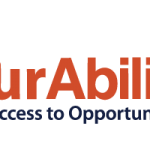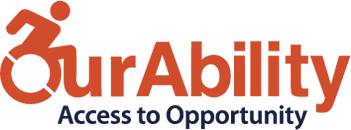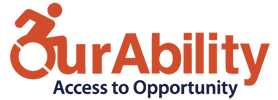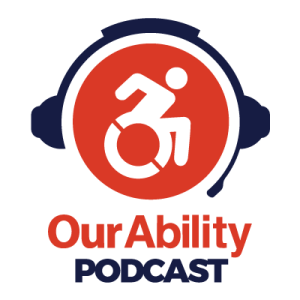
New Video Program Seeks to Help Adaptive Golfers
September 6, 2022
Job Opportunity: Senior Account Manager | Join Our Team!
September 19, 2022Our Ability Announces New Hire to Support AI & Engineering

Blind Advocate who has Paved the Way for others in Technology Now Living the Mission of Our Ability
(Albany, N.Y.) – Our Ability has hired Kartik Sawhney to lead the artificial intelligence (AI) and engineering initiatives at the company. He started at the end of August. Sawhney, currently located in Seattle, is a disability advocate and technologist who was the first blind student to pursue science education in high school in India in 2011. He has not allowed his disability to create any barriers in his pursuit of personal and professional successes.
Sawhney advocated to change rules in India’s educational system and now, any blind student from across the country may pursue sciences in high school. Similarly, after several months of advocacy, he convinced the top technical universities in India to open their doors to blind students, leading to at least fifteen students in India pursuing engineering today.
“Having someone with the reputation and ability of Kartik Sawhney join Our Ability is exciting,” said Our Ability CEO John Robinson. “It speaks volumes to what we can build to assist individuals with disabilities worldwide seeking employment. Now, it is our collective responsibility to fulfill the promise of inclusion. We will continue to enhance our AI platforms to advance our mission. This is a great day.”
Sawhney, in his new role, will be responsible for furthering the usage of Jobs Ability, the ablest language filter, Abli.AI, and additional accessibility products.
“Technology, and AI in particular, has a lot of potential in leveling the playing field for people with disabilities,” said Sawhney. “To be able to have an impact on the employability of people with disabilities and scale this using technology is very exciting, and I can’t wait to contribute to the amazing work that Our Ability is already doing.”
Sawhney is a computer science graduate of Stanford University. He co-founded the nonprofit Project StemAccess, now called I-Stem, which provides technical training, mentorship, and hands-on opportunities to blind students across the country. The nonprofit develops technical solutions to empower individuals to access educational and employment opportunities.
As an engineer on the accessibility innovation team at Microsoft, Kartik continues to help identify and develop accessible technologies. Further, given his experience in accessibility and assistive technologies, he serves as an adjunct faculty at the Indian Council of Medical Research, besides serving on boards of several organizations and other high-level committees, such as the Education Commission’s Expert Panel on Technology and Education . His work and views have been published in several journals including UNICEF’s State of the world’s children Report, among others.
In recognition of his leadership potential and work, Kartik received the Queen’s Young Leaders Award 2016 from Her Majesty The Queen. In addition, he has received the National Award for Empowerment of Persons with Disabilities (India’s highest honor for contributions to the disability sector) and was selected as one of the 17 UN young leaders for Sustainable Development Goals 2018 by the Secretary General’s Envoy on Youth.
To learn more about Our Ability and Jobs Ability, visit https://www.ourability.com/.
About Our Ability. As pioneers in disability inclusion, employment and workplace accessibility, Our Ability acts as a bridge between individuals and businesses through education and collaboration. Our goal is to empower employers to understand and leverage the increasingly valuable employment population of people with disabilities, proven to lower job turnover rates and boost morale and productivity



